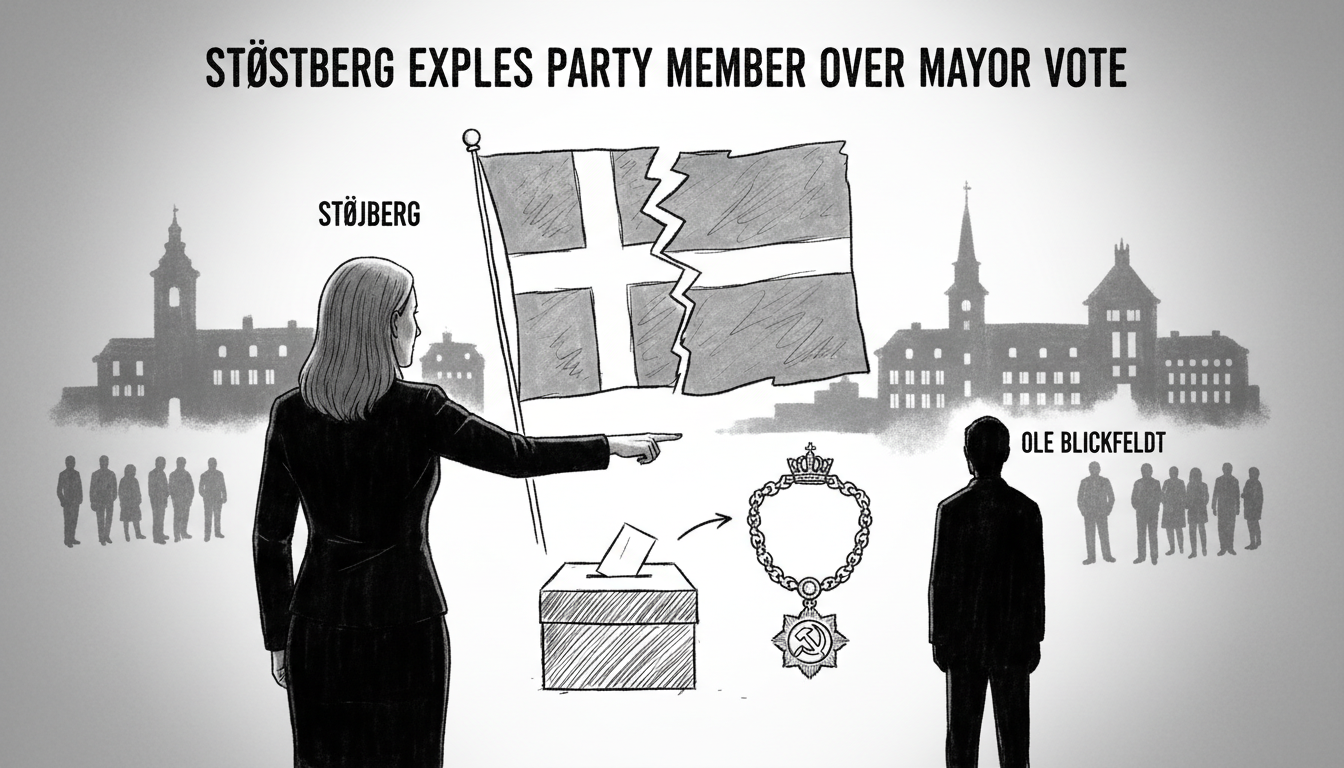Denmark Democrats leader Inger Støjberg has expelled local council member Ole Blickfeldt from her party. The expulsion came after Blickfeldt supported a Socialist People's Party candidate for mayor in Lejre Municipality. This happened despite a clear center-right majority in the council following Tuesday's local elections.
Støjberg confirmed the expulsion in a public statement. She explained the party had established clear rules before the election. "Ole Blickfeldt was expelled from the party today," she said. "We were very clear that if there's a blue majority, we naturally don't support a red mayor."
The party leader emphasized there was no room for negotiation. "When someone directly calls and says 'I'm not going to follow that,' there's only one path forward," Støjberg added. "That means goodbye for now."
Lejre Municipality's council has 25 seats. Center-right parties secured 13 of these positions in the recent election. This should have been sufficient for incumbent mayor Tina Mandrup from the Liberal Party to retain her position. Instead, Socialist People's Party candidate Mikael Ralf Larsen appears set to become the new mayor.
Seventeen out of 25 council members support Larsen's candidacy. This includes the single seat held by Denmark Democrats. The situation reveals the complex nature of Danish local politics where party discipline sometimes clashes with local alliances.
Ole Blickfeldt previously served on Lejre council after being elected for the Danish People's Party in 2021. He confirmed receiving notification about his expulsion but declined to provide additional comments. Blickfeldt received 172 personal votes in Tuesday's election, showing considerable local support despite his party's actions.
This incident highlights the ongoing tensions within Denmark's political landscape. Støjberg's firm stance demonstrates her party's commitment to maintaining strict party discipline. The expulsion also shows how local political dynamics can sometimes override national party alliances in Danish municipal politics.
The case raises questions about party autonomy versus local representation. Council members must balance party loyalty with their responsibility to constituents. Blickfeldt's substantial personal vote count suggests his decision might have reflected local preferences rather than party politics.
Danish local government operates with considerable autonomy. Municipal councils handle important services like schools, elderly care, and local infrastructure. Mayor positions carry significant influence over these services, making political alliances crucial for effective governance.
The expulsion could have implications for future local collaborations. Other parties might view Denmark Democrats as less reliable partners for cross-party cooperation. This could affect the party's ability to influence local decisions beyond strict party lines.
Local political experts note this isn't the first time Danish parties have faced discipline issues. Similar conflicts have occurred in other municipalities where local considerations conflicted with national party strategies. The consistency of Støjberg's response suggests she's establishing clear boundaries for her relatively new party.
Blickfeldt now faces decisions about his political future. He could continue as an independent council member or seek alignment with another party. His personal vote count provides a strong foundation for continuing his political work regardless of party affiliation.
The situation in Lejre continues to develop as the new council prepares to take office. The mayor election will proceed despite the party expulsion, with Larsen likely securing the position through cross-party support.

